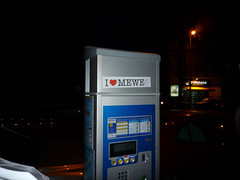Lebanon’s woefully inadequate Internet connectivity has long been a subject of national frustration, but a recent announcement by the Lebanese Telecommunications Ministry has given Lebanese Internet users some cause for optimism. The Ministry announced on Tuesday that the IMEWE (India-Middle East-Western Europe) submarine cable, which has been operational since 2009, has finally been activated, opening the door for broadband-speed Internet to proliferate in Lebanon.
The IMEWE is a “pipe” running from India to France through the Middle East that has the capacity to drastically improve Internet speed in Lebanon as well as enable Lebanon’s telecommunications providers to offer 3G data service. Internet costs could also drop significantly, pending the passage of a bill scheduled to be presented to the cabinet by telecommunications minister Nicolas Sehnawi in the next three weeks, reports Emma Gatten of the Daily Star.
This announcement has encouraged Lebanese Internet advocacy groups, long frustrated by the stagnancy of their situation. As one might expect given the nature of this initiative, advocacy groups have made extensive use of social media in their efforts to promote the activation of the IMEWE cable, and such groups have observed high levels of activity on their Facebook pages and forums over the past few days. One such group, Fast Lebanon, administers both a Twitter account (@fastlebanon) and a Facebook page called, Lebanese Want Fast Internet. The page has accumulated over 45,000 “Likes” and has been abuzz of late with discussions about the Telecommunications Ministry’s announcement. Fast Lebanon has also been encouraging the page’s followers to message members of the Lebanese parliament through Facebook, a sort of virtual letter-writing campaign.

Flip the Switch’s I <3 MEWE stickers
Similarly, Ontornet has capitalized on social media like Facebook to rally support for their stated goal of affordable, high-speed internet in Lebanon. Ontornet offers a wealth of information about Internet in Lebanon on their blog and website, and it keeps its followers updated on the campaign’s progress through its Facebook page and Twitter account (@OntorNet). Their campaign has received national and even international press coverage. Flip the Switch, yet another grassroots campaign for faster Internet in Lebanon, is active on Facebook and its website provides information about Internet related legislation, as well as a blog featuring regular updates on the organization’s various initiatives, such as its “I <3 MEWE” sticker campaign (pictured).
What all of these groups have in common is a realization that there is much at stake here, considering the state of Internet connectivity in Lebanon. Lebanon’s Internet speed currently lags far behind almost all other nations according to Net Index, a site that provides information on average upload and download speeds for country-to-country comparison. Lebanon’s household download speed ranks 170th of the 172 countries profiled, edging out only Iran and Malawi.
Activists and economists alike cite the considerable economic growth faster internet could catalyze in Lebanon. A 2010 World Bank report, “Building broadband: Strategies and policies for the developing world,” found that “every 10 percentage point increase in broadband penetration accelerates economic growth by 1.38 percentage points,” in low- and middle-income countries. A resolution to Lebanon’s Internet saga, therefore, has implications that extend well beyond household web browsing.
Information is still sketchy as to the actual date broadband Internet and 3G service could arrive in Lebanon, and the posts on Fast Lebanon’s Facebook page reflect this uncertainty. User Aiman Baroudi captured the sentiments of his compatriots in a post to the page’s wall: “The only two questions Lebanese people are asking now: How Much?…When Exactly?” Neither MPs nor Internet service providers (ISPs) have been able to answer these questions, so it seems that Lebanon will have to be patient for the time being.
Of course, when it comes to the Internet, the Lebanese are rather accustomed to waiting.



